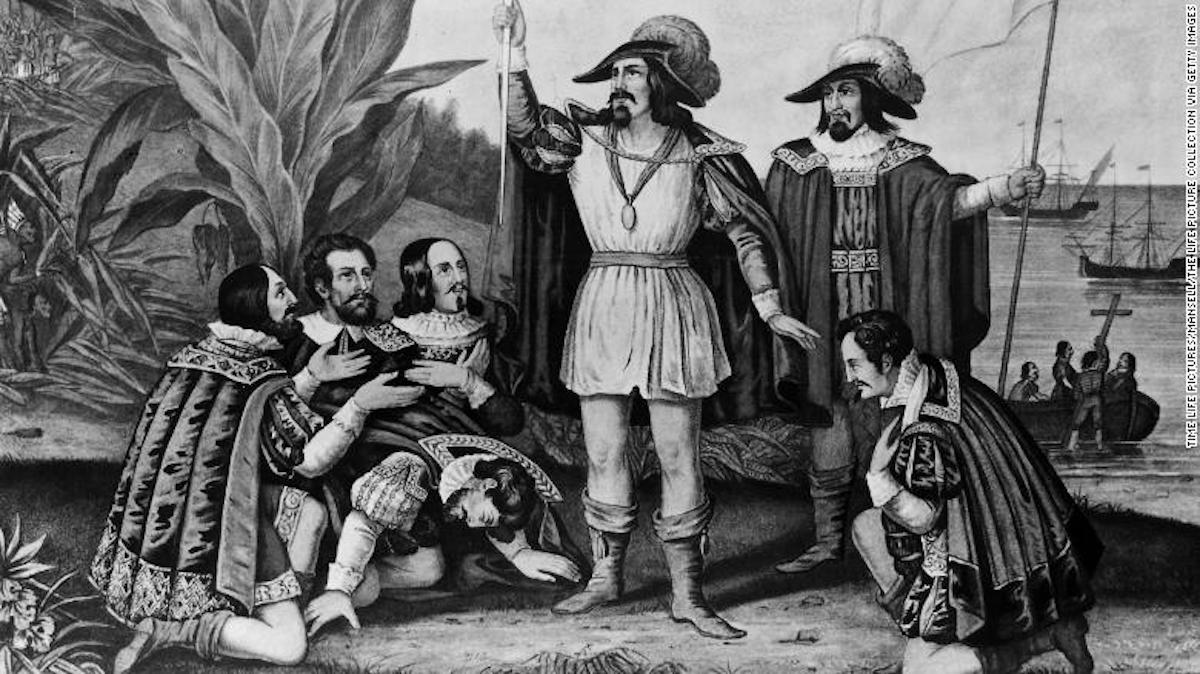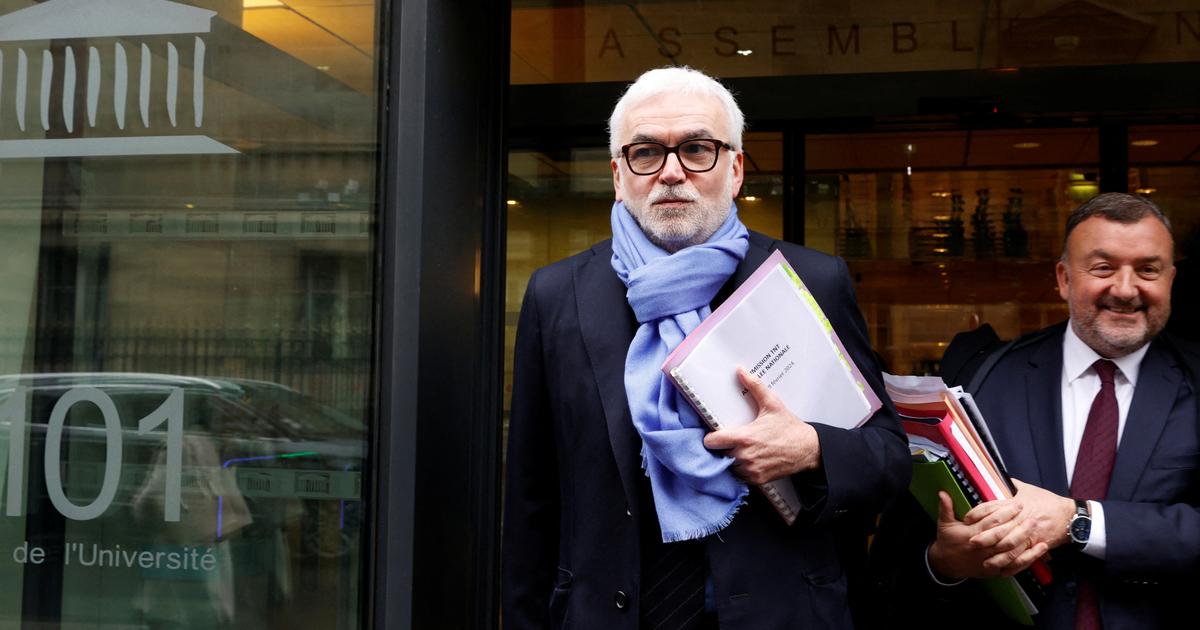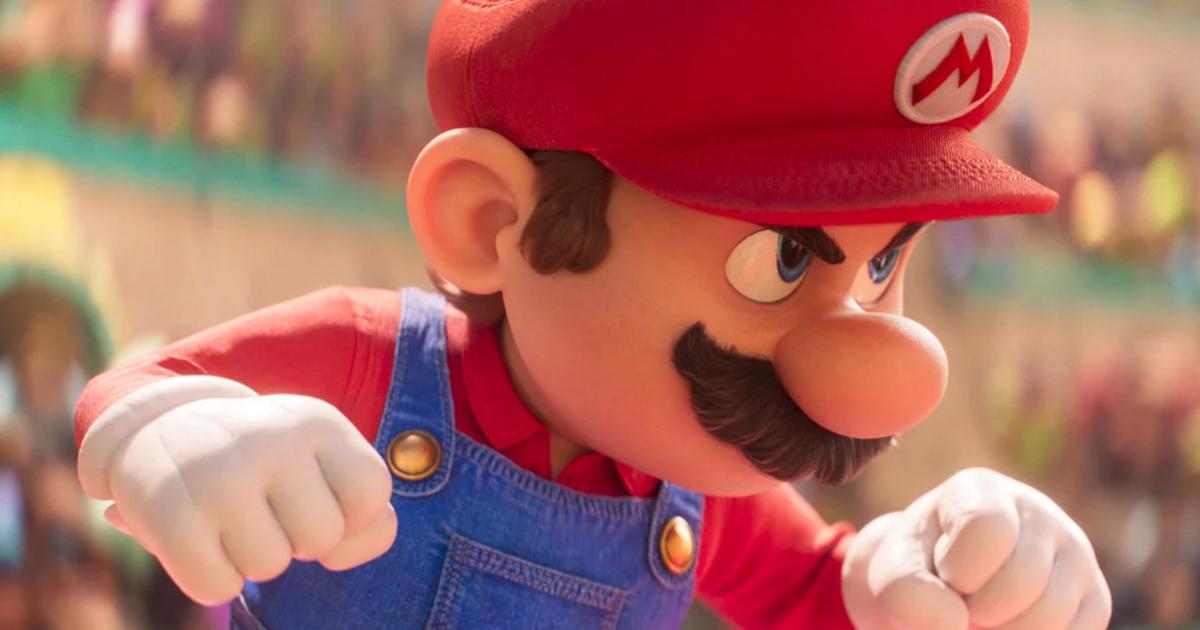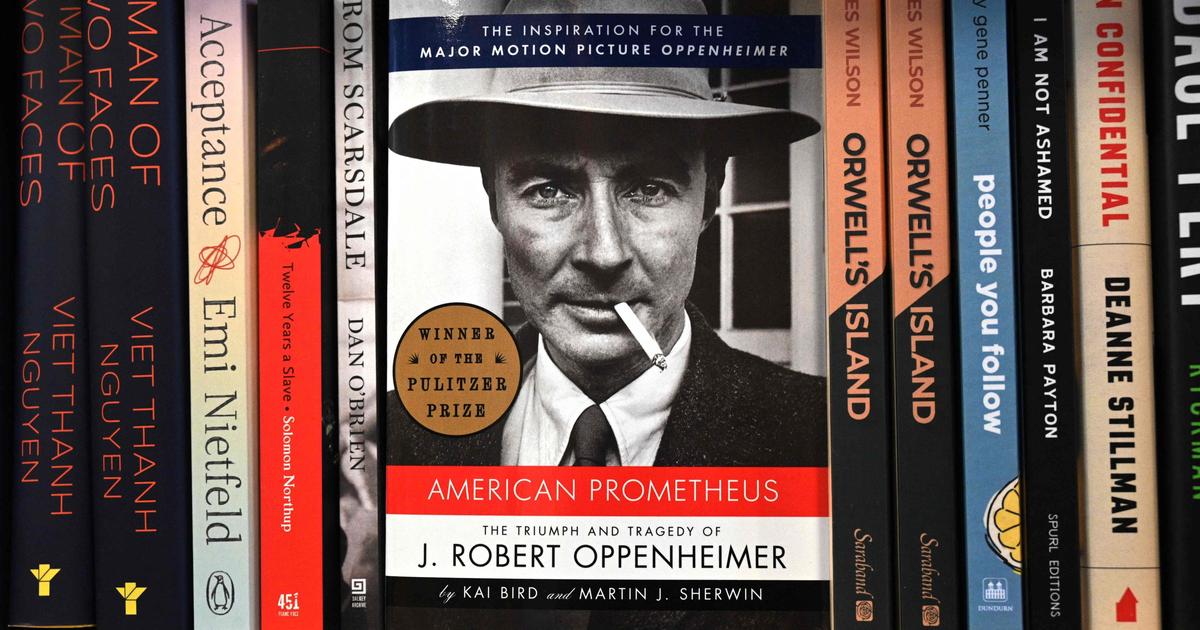Statues of Columbus 1:14 vandalized
(CNN) -
"In 1492, Columbus sailed the blue ocean."
That phrase has long been what American students were introduced to Christopher Columbus in elementary school.
Students are taught that Columbus was the one who discovered America, crossing the Atlantic in his three ships: La Niña, La Pinta, and La Santa María.
Inclusive, in honor of the Genoese explorer a holiday is celebrated in October that, in the United States, bears his name.
In Latin America, Columbus Day is celebrated, also in his honor.
Currier and Ives impression of the Genoese explorer Christopher Columbus (1451-1506), arriving in "the West Indies", on October 11, 1492.
But the man credited with discovering the New World has been considered a controversial figure in American history for his treatment of the indigenous communities he encountered and for his role in violent colonization.
Dozens of cities and states, including Minnesota, Alaska, Vermont, and Oregon, have already replaced Columbus Day with Indigenous Peoples' Day.
advertising
Now, in response to protests and conversations across the country around racial inequality, people have been tearing down statues of Columbus to publicize the cruelty he brought to indigenous peoples.
Statue of Christopher Columbus in Mexico City to be replaced by one of an indigenous woman
So what did Columbus actually do and why is he labeled a "tyrant" rather than the hero we were taught to believe?
"We should ask ourselves why we as Americans continue to celebrate it without knowing the true story of its legacy, and why a party was created in the first place," Leo Killsback, a citizen of the Cheyenne Nation, told CNN in 2016. Norte and assistant professor of American Indian Studies at Arizona State University.
He was not the first to discover America.
There is no doubt that Columbus's voyages had an "undeniable historical impact, sparking the great age of Atlantic exploration, trade, and eventually colonization by Europeans," said historian David M. Perry, who wrote an op-ed for CNN about Columbus Day, in 2015.
But Columbus was not the first to discover the New World.
Indigenous peoples had been living there for centuries when he arrived in 1492 and Leif Eriksson and the Vikings had already been there five centuries earlier.
Enslaved the Indians
During his travels through the Caribbean islands and the coasts of Central and South America, Columbus encountered indigenous peoples whom he described as "Indians."
Columbus and his men enslaved many of these natives and treated them with extreme violence and brutality, according to History.com.
Throughout his years in America, Columbus forced the natives to work for a profit.
Later, he sent thousands of Taino "Indians" to Spain to sell, and many of them died during the trip.
The natives who were not sold as slaves were forced to search for gold in the mines and work on the plantations.
While he was governor of what is now the Dominican Republic, Columbus killed many natives in response to his revolt, according to History.com.
To prevent a further rebellion, he had corpses paraded through the streets.
Brought new diseases
Native American societies "were decimated by exposure to Old World diseases, crumbling under the weight of the epidemic," Perry wrote in his CNN op-ed.
The Taino population was not immune to diseases such as smallpox, measles, and influenza, which were brought to their island of Hispaniola by Columbus and his men.
In 1492, there were approximately 250,000 Indians on Hispaniola, but by 1517, only 14,000 remained, according to the Oklahoma Medical Research Foundation (OMRF).
Some historians believe that the impact of European and African settlers in the New World possibly killed up to 90% of native populations and was more deadly than the Black Death in medieval Europe, OMRF said.
- CNN's Leah Asmelash, Holly Yan, and Lauren M. Johnson contributed to this report.
Christopher Columbus









